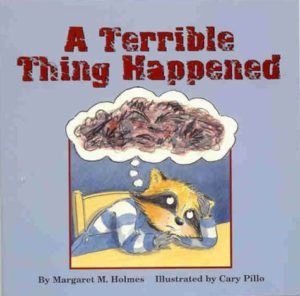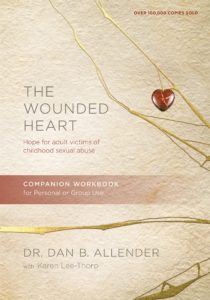Trauma and PTSD
We live in a broken world where unfortunate and difficult things happen. Trauma is one of these things, and it comes in a broad range of forms and levels of severity. While adults have difficulties understanding and coping with traumatic situations, it can be especially impactful for children and teens as they often don’t have the emotional coping skills or cognitive abilities to have a framework to think through what has occurred. Whether you are experiencing an unfortunate trauma in your own family unit or are helping encourage someone in their trauma journey, learning about trauma, common reactions that may occur because of trauma, and how to be supportive is important.
What is trauma?
Trauma reactions are normal responses to abnormal events. Common sources of trauma can include but are not limited to:
- Accidents (e.g., vehicles, fires, workplace)
- Natural Disasters (e.g., tornados, hurricanes, etc.)
- Experiencing a violent crime or situation
- Serious Medical Events (life threatening illness, painful procedures, etc.)
- Abuse (physical, emotional or sexual abuse; or domestic abuse)
Individuals who have experienced trauma often have intrusive thoughts and memories of the event such as nightmares and flashbacks. They often try to avoid thinking of the event or being around things that remind them of the event. Their thinking and mood are often negatively impacted, and depression, anxiety, and shame are common. They experience retriggering of strong emotions and fight, flight, or freeze responses occur often with little warning. Trauma does not simply heal over time as suggested by the old adage, “time heals all wounds”. Often, the most natural things people do is suppressing thoughts or trying to numb the strong emotions to cope with their trauma symptoms. This suppression then actually hinders healing and prolongs the suffering trauma can bring. Learning about trauma and how to respond to it in healthy ways is often more than half the battle.
Effects of Trauma
Trauma does not just affect an individual’s memories. It impacts their whole being. Of course, the severity of the trauma, how many times it occurred, whether they have a support network, and whether they received high-quality treatment will all combine to determine how pervasively a traumatic event affects a person over time. Because trauma can affect the whole person, the subsequent treatment and recovery needs to address all these areas. For example, trauma often causes individuals to be hyper-vigilant and their bodies stay on high alert. This can lead to jumpiness, irritability, and difficulty sleeping. Learning skills to quiet one’s body is as important as learning how to quiet one’s mind. Trauma can leave people with beliefs such as no one can be trusted; survivor’s guilt (Why did my friend die in that accident, and I survived?); or one does not deserve ever to be happy again. Learning to recognize one’s unhealthy self-talk and corresponding cognitive distortions is important in the healing journey. Experiencing a grieving process is often required for healing from trauma as well. Having supportive family, friends, and church community can be an incredible help in the recovery process.
Trauma Support
For Christians who have experienced a traumatic incident(s), having the support of a church family can provide a caring community as well as provide a framework for dealing with suffering. The church family can help carry the burdens of those who have walked through this difficulty (Gal. 6:2). Despite having these supports, it is very common for Christians to have questions, doubts, and confusion as to why a traumatic event has occurred. This is normal. Give yourself and others time and compassion to work through things. Don’t hesitate to contact ACCFS to get help in processing through the impact of trauma in yourself or in others, especially for children or teens. Effective treatments are available and having someone to guide you through the healing process can reduce the suffering and move the healing process along as we trust in the God who, through his mercy and grace, is able to restore our soul (Ps. 23:3).
Get Help: Don’t hesitate to contact ACCFS or another mental health professional to get help in processing through the impact of trauma in yourself or in others. Effective treatments are available and having someone to guide you through the healing process can reduce the suffering and move the healing process along.
Further Information:
For Children & Teens
Helping Children Cope with Traumatic Events: Tips for Helping a Child or Teen Recover from Trauma [Helpguide.org]
National Child Traumatic Stress Network
This organization provides information on effects and treatment of trauma in children and teens in the following areas:
- Community violence
- Complex trauma
- Disasters (tornados, hurricanes, floods, etc.)
- Domestic violence
- Early childhood trauma (ages 0-6)
- Medical trauma
- Physical abuse
- Refugee trauma
- Sexual abuse
- Terrorism and violence
- Traumatic grief
Parents Trauma Resource Center
This site provides parents with practical information about how to help their children after a traumatic event or loss. [National Institute for Trauma and Loss in Children]
Child Welfare Information Gateway
At this site you can search for information on the laws regarding child abuse and neglect in each state. Child abuse hotline numbers and laws regarding mandated reporters can also be found here.
Books
 A Terrible Thing Happened
A Terrible Thing Happened ![]()
Author: Margaret M. Holmes
This gently told and tenderly illustrated story is for children who have witnessed any kind of violent or traumatic episode, including physical abuse, school or gang violence, accidents, homicide, suicide, and natural disasters such as floods or fire. An afterword by Sasha J. Mudlaff written for parents and other caregivers offers extensive suggestions for helping traumatized children, including a list of other sources that focus on specific events.
 Learning to Trust Again: A Young Woman’s Journey of Healing from Sexual Abuse
Learning to Trust Again: A Young Woman’s Journey of Healing from Sexual Abuse ![]()
Author: Christa Sands
This 215-page book is good for teenage and young adult women who have been sexually abused. The author tells of her own experience of dealing with sexual abuse and her journey of healing. The book is also a resource for parents and other helpers offering clear guidelines regarding how to respond when a child tells them about abuse, how to report this crime to authorities, and how to support the child and themselves after they have found out about the abuse.
 Children and Trauma
Children and Trauma ![]()
Author: Cynthia Monahon
This book teaches parents and professionals about the effects of trauma on children and offers a blueprint for restoring a child’s sense of safety and balance. The author suggests straightforward ways to help kids through tough times, and also describes in detail the warning signs that indicate a child needs professional help.
Support Options
988 Suicide & Crisis Lifeline
This Lifeline is for people experiencing a crisis and is available 24/7 in the United States. If you need help for yourself, a friend, or family member, call or text 988 right away.
For Adults
Helping Someone with PTSD: Helping a Loved One with Post Traumatic Stress Disorder
This site provides helpful information for family members of someone experiencing PTSD. [helpguide.org]
Post-Traumatic Stress Disorder (PTSD): Symptoms, Causes, Treatment
This site provides information about PTSD and types of help available for those who have experienced trauma. [helpguide.org]
Biblical Insights on Trauma
When Tragedy Strikes – Finding Security in A Vulnerable World
This booklet provides guidance for dealing with the emotional and spiritual issues that arise after traumatic experiences (e.g., natural disasters, tragic accidents, and violent crimes). [ODB Ministries]
After the Hurricane
This booklet explains how to respond to and understand calamities, disasters and tragedies. It was written primarily for those who help individuals impacted by tragedies, such as relief workers. [ODB Ministries]
Resources for Adults Healing from Trauma and PTSD
 Life After Trauma: A Workbook for Healing
Life After Trauma: A Workbook for Healing ![]()
Authors: Dena Rosenbloom, Mary Beth Williams
This 352-page workbook helps survivors of various types of trauma rebuild their lives. The book includes step-by-step chapters that guide you toward developing resources for coping, self-understanding, and self-care.
 The Body Keeps the Score: Brain, Mind, and Body in the Healing of Trauma
The Body Keeps the Score: Brain, Mind, and Body in the Healing of Trauma ![]()
Author: Bessel van der Kolk
This 464-page book provides a comprehensive look at what trauma is and the many ways it afflicts the lives of human beings. After making trauma and its fallout more understandable, the author charts a path for healing for trauma survivors. This is an excellent book for individuals who want to better understand and support a loved one who has experience trauma.
Resources for Adults Healing from Childhood Sexual Abuse
When Trust is Lost
This booklet provides an excellent overview of the impact of sexual abuse and the steps for healing. [ODB Ministries]
 The Wounded Heart
The Wounded Heart ![]()
Author: Dan B. Allender
This resource gives hope for adult victims of childhood sexual abuse. It brings the realities of damaging human experience into the perspective of a loving God and blends a keen understanding of the dynamics of sexual abuse with the practical application of Christian truth.
 The Wounded Heart – Companion Workbook
The Wounded Heart – Companion Workbook ![]()
Authors: Dan B. Allender, Karen Lee-Thorp
This 201-page workbook is a companion to The Wounded Heart book. It is designed to be used either in single study or in a group setting. It leads step-by-step through the process of change: facing the truth about past and present experiences and feelings; wrestling with God, other people, and self; and understanding the goals and fears that have determined how victims relate to others.
Resources for Adults Dealing with Post-Abortion Trauma and Loss
Post-Abortion Trauma and Loss [ACCFS]
Screening Tools
PTSD Self-Screen
Self-screening promotes taking the first step in seeking PTSD treatment. The self-screen takes only a few minutes to complete and can help you discover if your feelings and behaviors may be related to PTSD. All screening responses are private — they are not collected or shared. [National Center for PTSD]





Comments
Leave a Comment